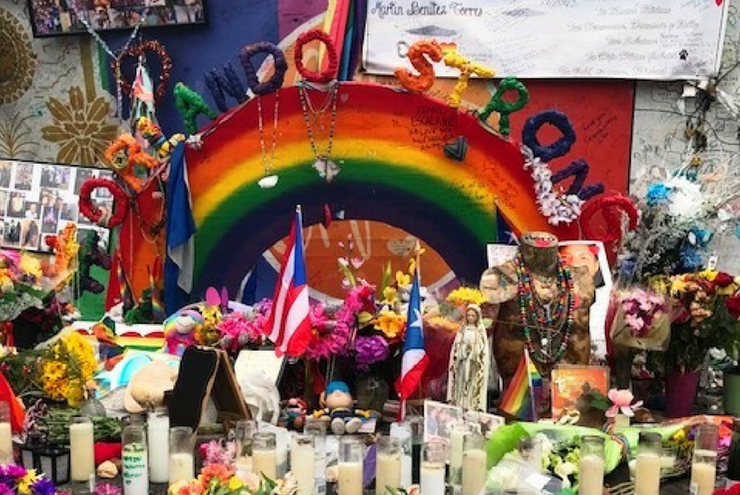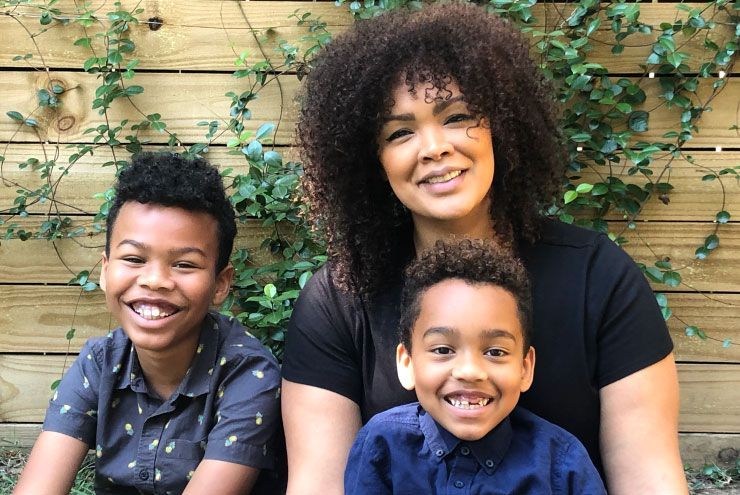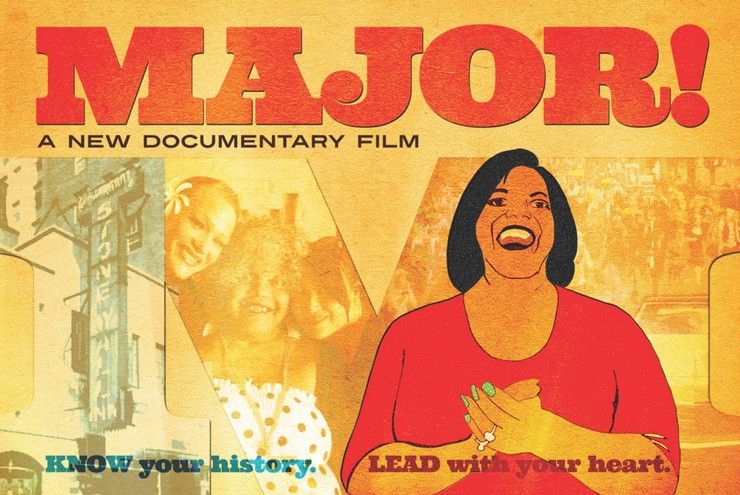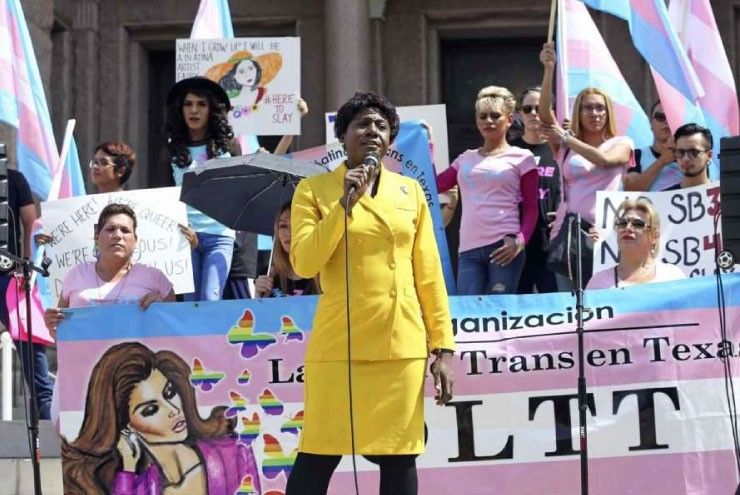By Laura McGuire
On June 12, 2016, I woke up next to my then-girlfriend after a long and tumultuous night. We had been up late having a very tearful discussion about her coming out to her family. She had not yet told them about me or our relationship, and it was fracturing what we were trying to grow and nurture. She came from a family of Mexican and Cuban heritage, composed of first generation immigrants who had made extremely homophobic statements her entire life. She felt that they would never change their beliefs, and feared that coming out to them would cause her to lose them forever.

Visitors write notes of love, sorrow, and hope on this art memorial outside of Pulse.
We got up and turned on the news while I made breakfast for everyone. There it was: Orlando. Pulse. Shooting. Gay Night Club. Latin Night. Many Fatalities. We sat there stunned. I was living in Houston at the time, but had grown up for 17 years in Central Florida. My heart shattered. The fight from the night before seemed to take on a whole new meaning.
The next day, she came out to her family and they embraced her with open arms. Many of the families of Pulse victims, who were predominantly Latinx, did the same. Others were not so fortunate—including one unclaimed victim, whose Puerto Rican family refused to accept his gay identity. It reminds us that homophobia and the fear of coming out are not only LGBTQ issues, but racial justice ones as well.
We parted ways shortly after the shooting, and one year later, I wonder where she is as I stand outside the Pulse nightclub in Orlando. My now dear one stands by my side in the sweltering humidity as we remember the tragedy that occurred only 12 months prior. I remember going to the memorial in Houston last year, and how the extreme heat caused sweat to pour down my legs. This year in Florida I notice the same things—heat and sweat, mixing with tears and heartache. The rainbows all around seem to symbolize the hope after the violent storm.
I notice people on their phones, texting and checking social media. I think of how the police noted the numerous phones strewn across the club that night, illuminated by repeated calls from desperate family and friends—hoping to hear from their loved ones, believing that if they called enough, eventually they would hear more than an answering message. All around me are homemade shirts dedicated to victims who are sisters, brothers, friends, lovers, daughters, and sons to the people next to me. Tattoos of rainbow heartbeats and other similar images grace the arms and backs of the memorial service participants. We line up to see the beginning of the ceremony, but there are so many of us that most people are left outside amongst the art memorials. A prayer, in both English and Spanish, starts the ceremony. The Orlando Gay Men’s Choir leads us in song—melodies of bravery, strength, and endurance bring everyone to tears.

A photo collage memorial for one of the 49 victims of the Pulse shooting.
Last year, I spoke at a meeting at the University of Houston concerning the tragedy. I spoke on how, after the 2015 Supreme Court ruling in favor of marriage equality, many in the queer community thought our major struggles were behind us. While Pride 2015 was beyond joyous, we forgot why we march. In 2016, we were reminded by the tragic loss of 49 of our young, precious LGBTQ siblings. We march to fight for justice, equality, and equity, to create a better future than our present, and to honor those who fought before us.
Back in the crowd, I ask participants what this memorial and anniversary means to them. The same messages come up over and over—that hope and love must prevail, that this event has deeply impacted youth just coming out, and that we are stronger as a community because of it.
Below is a sampling of their responses:
“It’s really surreal. It’s really hard to think about what we went through a year ago. My partner and I were at the [Two Spirit Health Services] center right after it happened and we just went into action mode. There isn’t a lot of opportunity to grieve for yourself when you are the healers.” —Lindsay Kincaide, Director of Development for Two Spirit Health Services
“This violence has affected the entire community. It’s affected the parents of some of the children that we provide services to. This is my neighborhood. I heard the sirens a year ago during the night. [I] found out the next day what had occurred.” —Hue Jacobs, Executive Director for Volunteers for Community Impact
“I was actually here during the Pulse shooting. I worked with the Orange County Medical Examiner’s Office, so I was working with, and was very involved with this [tragedy]. I really like seeing all the support and all the people who are out here—whether it’s LGBTQ individuals or their family members and loved ones. I value my life a lot more now. A lot of love has been shown…more than usual.” —Zackary McCreight







